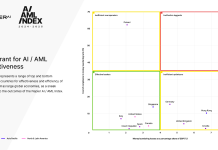The coronavirus has not only wreaked havoc on the global economy, but also increased the risk of money laundering, fraud and cybercrime.
In a bid to counteract this growing threat, the international Financial Action Task Force (FATF) has provided guidance on how to fight financial crime on the back of leveraging the insights from its members.
The FATF recognised that the global pandemic has harmed governments and the private sector’s ability to implement anti-money laundering (AML) and counter-terrorist financing (CFT) measures that can successfully counteract the growing trend. This, the FATF argued, could lead to emerging risks and vulnerabilities.
These risks include criminals finding new ways to bypass customer due diligence measures; increased misuse of online financial services and virtual assets to move and conceal illicit funds; and exploit economic stimulus measures and insolvency schemes as a means for natural and legal persons to conceal and launder illicit proceeds.
Criminals could also have a higher chance of using of the unregulated financial sector, creating additional opportunities for criminals to launder illicit funds; misuse and misappropriation of domestic and international financial aid and emergency funding; exploit COVID-19 and the associated economic downturn to move into new cash-intensive and high-liquidity lines of business in developing countries.
In order to help businesses and governments fight against the rise of financial crime, the new paper suggested several potential actions these market stakeholders could take. Those responses included increased implementing more domestic coordination to assess the impact of COVID-19 on AML/CFT risks and systems; strengthening communication with the private sector; encouraging the full use of a risk-based approach to customer due diligence; and supporting electronic and digital payment options.
Copyright © 2018 RegTech Analyst






